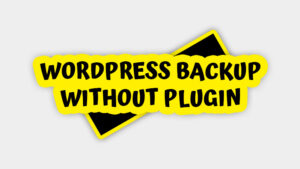Choosing a reliable and good web host is one of the most important decisions you’ll make for your website. A good web host ensures your site is accessible, secure, and performs well. With numerous hosting providers available, making the right choice can be challenging. Here are some key factors to consider when selecting a good web host.
Understand Your Hosting Needs
Before you start comparing web hosts, it’s crucial to understand your specific hosting needs. Consider the following questions:
- Type of Website : Are you running a blog, an e-commerce store, a portfolio site, or a business website?
- Traffic Volume : How much traffic do you expect? Will you need a hosting plan that can handle high traffic volumes?
- Technical Requirements : What specific software or technologies do you need (e.g., WordPress, PHP, MySQL)?
- Growth Potential : Can the host accommodate your site’s growth in terms of traffic, content, and functionality?
Types of Web Hosting
There are various types of web hosting services available, each suited to different needs:
- Shared Hosting : Ideal for beginners and small websites with low traffic. Your site shares server resources with other websites, making it an affordable option.
- VPS Hosting : Virtual Private Server (VPS) hosting provides more resources and better performance than shared hosting. It’s suitable for medium-sized websites with higher traffic.
- Dedicated Hosting : Offers the highest level of performance and security. You get an entire server dedicated to your website. This is best for large, high-traffic websites.
- Managed WordPress Hosting : Specifically optimized for WordPress sites, it offers enhanced performance, security, and support for WordPress users.
- Cloud Hosting : Uses multiple servers to host your site, ensuring high availability and scalability. It’s suitable for websites with fluctuating traffic.
Performance and Reliability
A good web host should provide high performance and reliability. Consider the following factors:
- Uptime Guarantee : Look for hosts that offer at least a 99.9% uptime guarantee. This ensures your site is available to visitors almost all the time.
- Speed and Performance : Choose a host with fast server response times. Speed is crucial for user experience and SEO. Check if the host uses SSD storage, CDN, and caching technologies.
- Scalability : Ensure the host can accommodate your site’s growth. Check if they offer easy upgrades to higher plans or additional resources.
Security Features
Security is paramount for any website. Look for hosts that offer robust security features, including:
- SSL Certificates : An SSL certificate encrypts data transferred between your site and visitors, protecting sensitive information.
- DDoS Protection : Defense against Distributed Denial of Service (DDoS) attacks, which can disrupt your site’s availability.
- Firewall and Malware Scanning : Regular scanning for malware and protection against hacking attempts.
- Automatic Backups : Regular backups ensure you can restore your site if something goes wrong.
Customer Support
Reliable customer support is essential, especially if you encounter technical issues. Consider the following:
- Support Channels : Check if the host offers multiple support channels, such as live chat, phone, email, and support tickets.
- 24/7 Availability : Ensure support is available 24/7, especially if you run a global website.
- Technical Expertise : Support staff should be knowledgeable and capable of resolving issues quickly.
Pricing and Plans
While cost shouldn’t be the only factor, it’s important to find a host that offers good value for money:
- Introductory vs. Renewal Rates : Be aware of the difference between introductory prices and renewal rates. Some hosts offer low initial prices that increase significantly upon renewal.
- Money-Back Guarantee : Look for hosts that offer a money-back guarantee, so you can try their services risk-free.
- Included Features : Compare what’s included in each plan, such as domain registration, email accounts, SSL certificates, and backups.
Reputation and Reviews
Research the host’s reputation and read user reviews:
- Customer Feedback : Look for reviews on independent review sites to get an unbiased perspective.
- Industry Awards : Check if the host has received any industry awards or recognition for their services.
- Testimonials : Read testimonials from other customers to understand their experiences.
Conclusion
Selecting a good web host involves evaluating your hosting needs, understanding the types of hosting available, and considering factors like performance, security, customer support, pricing, and reputation. By carefully considering these factors, you can choose a web host that provides the reliability, speed, and support your website needs to succeed.
Take your time to research and compare hosting providers, and select the one that best aligns with your requirements and goals.









